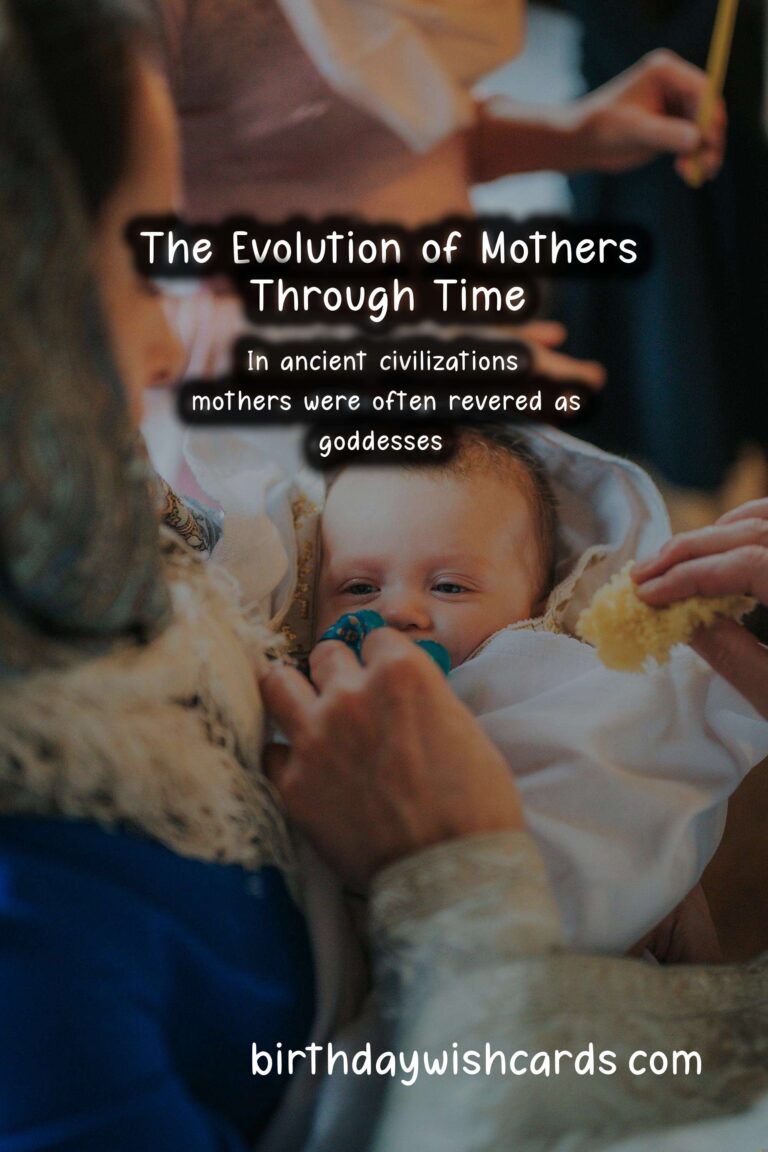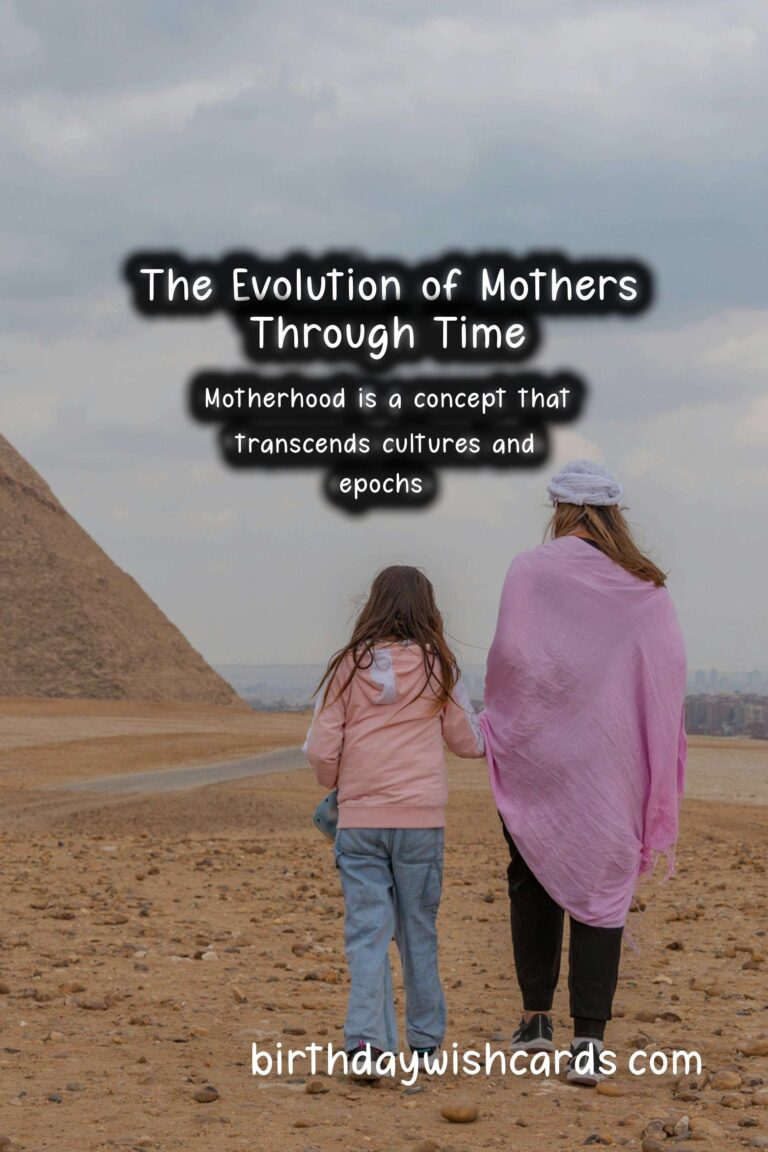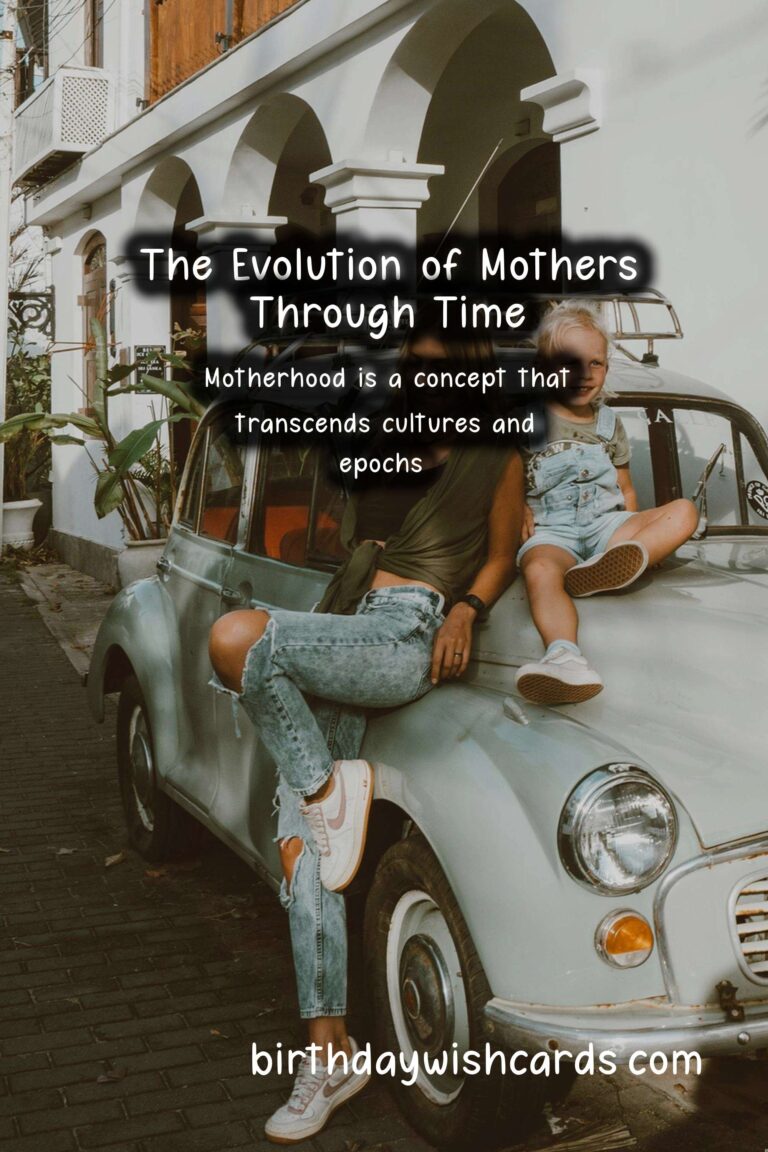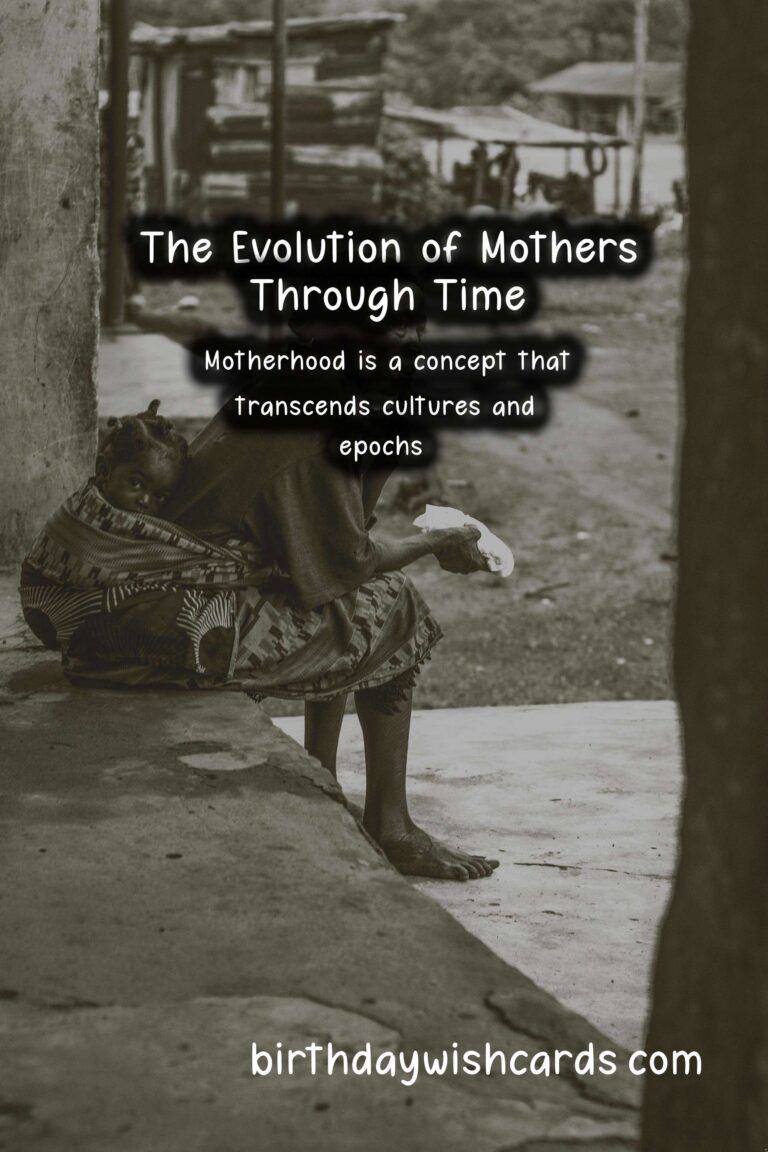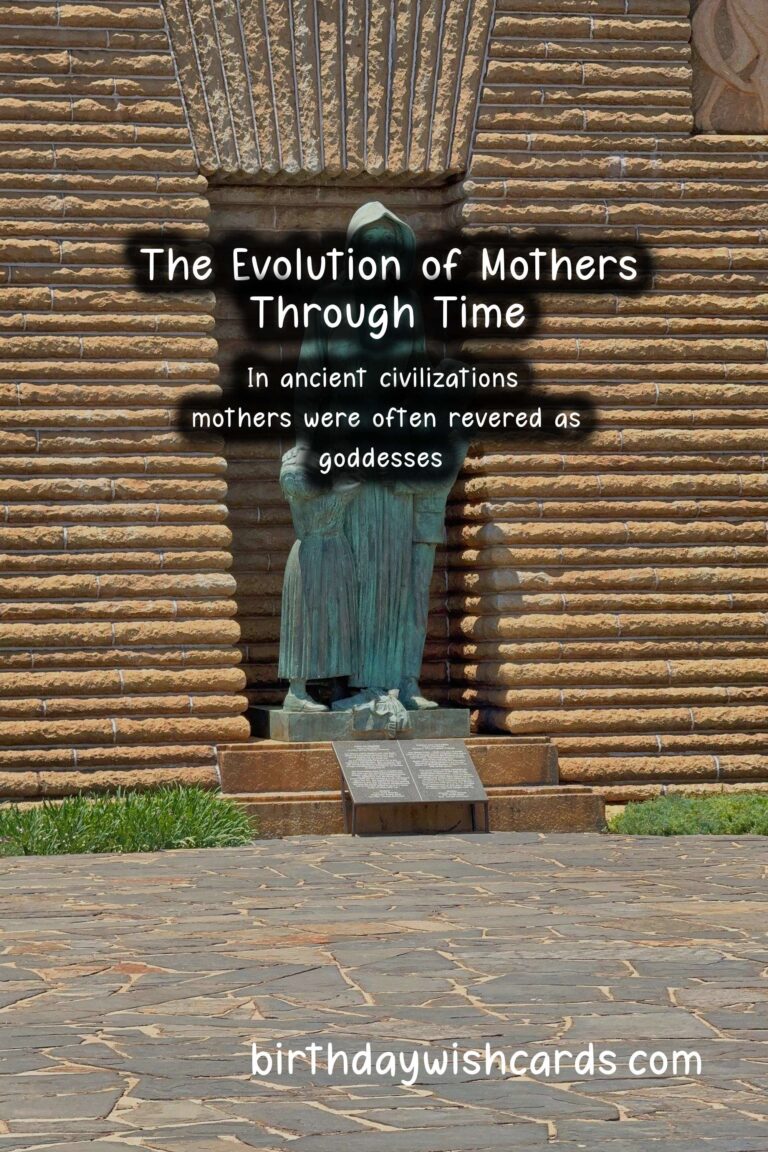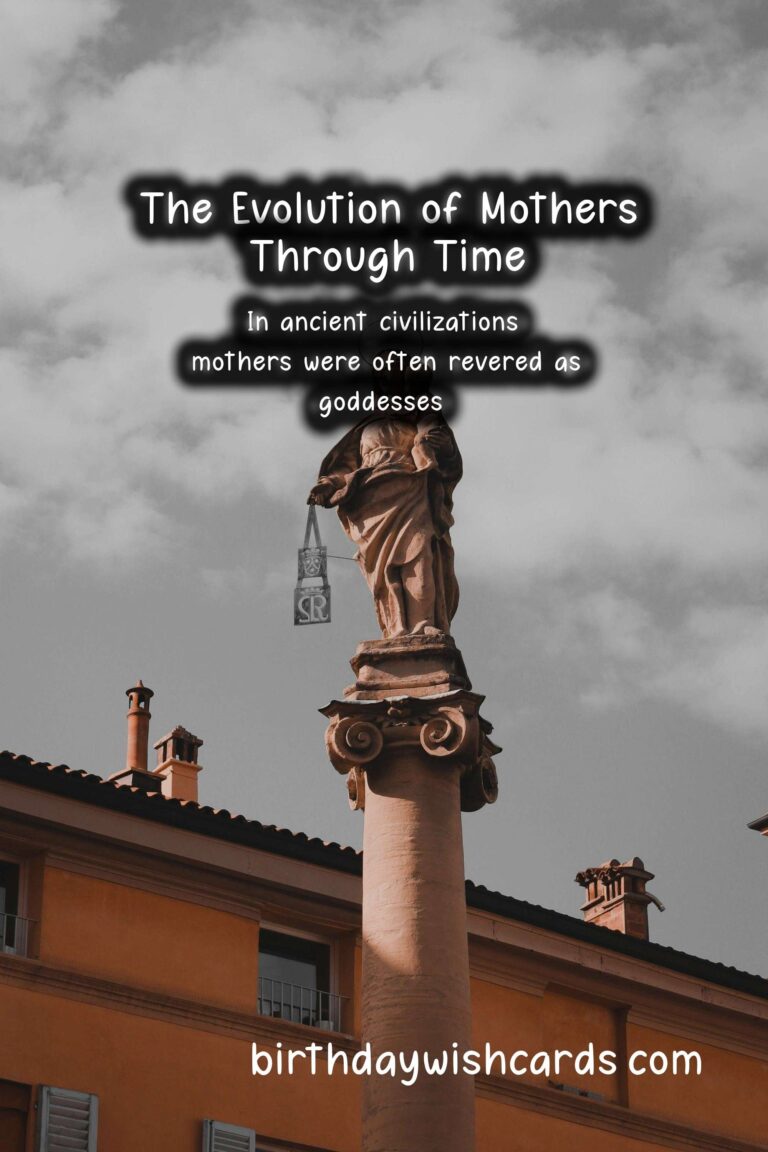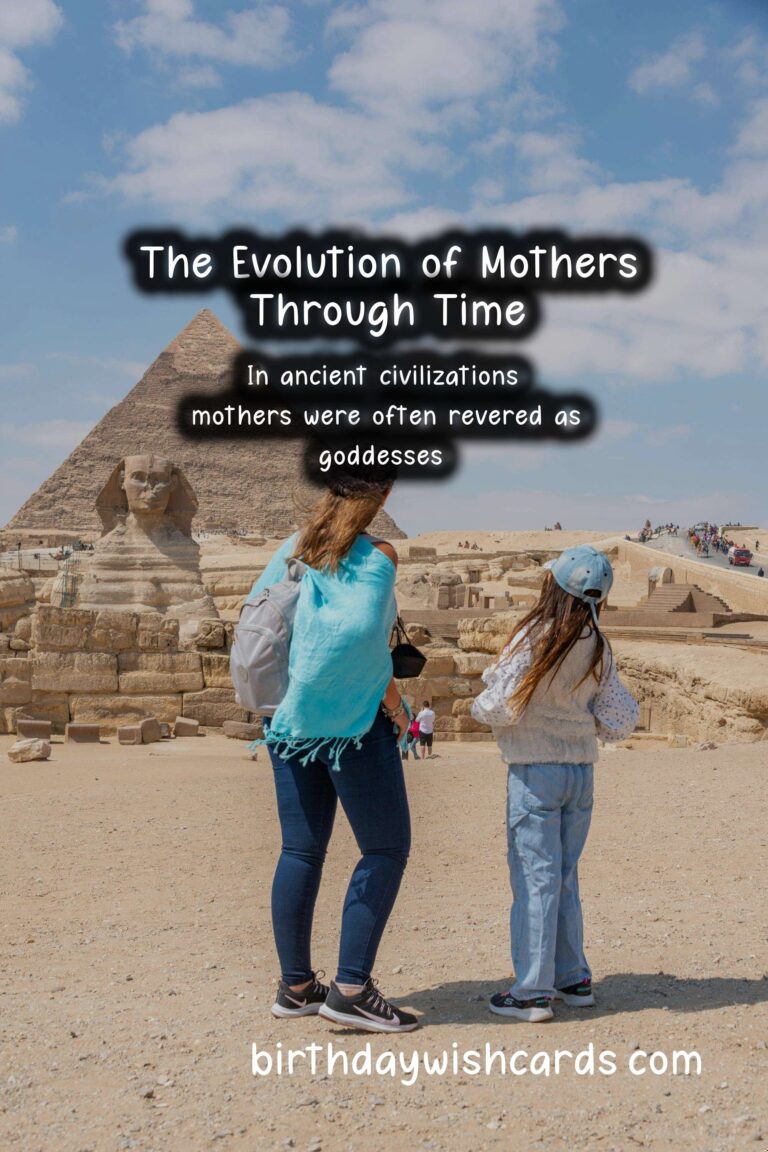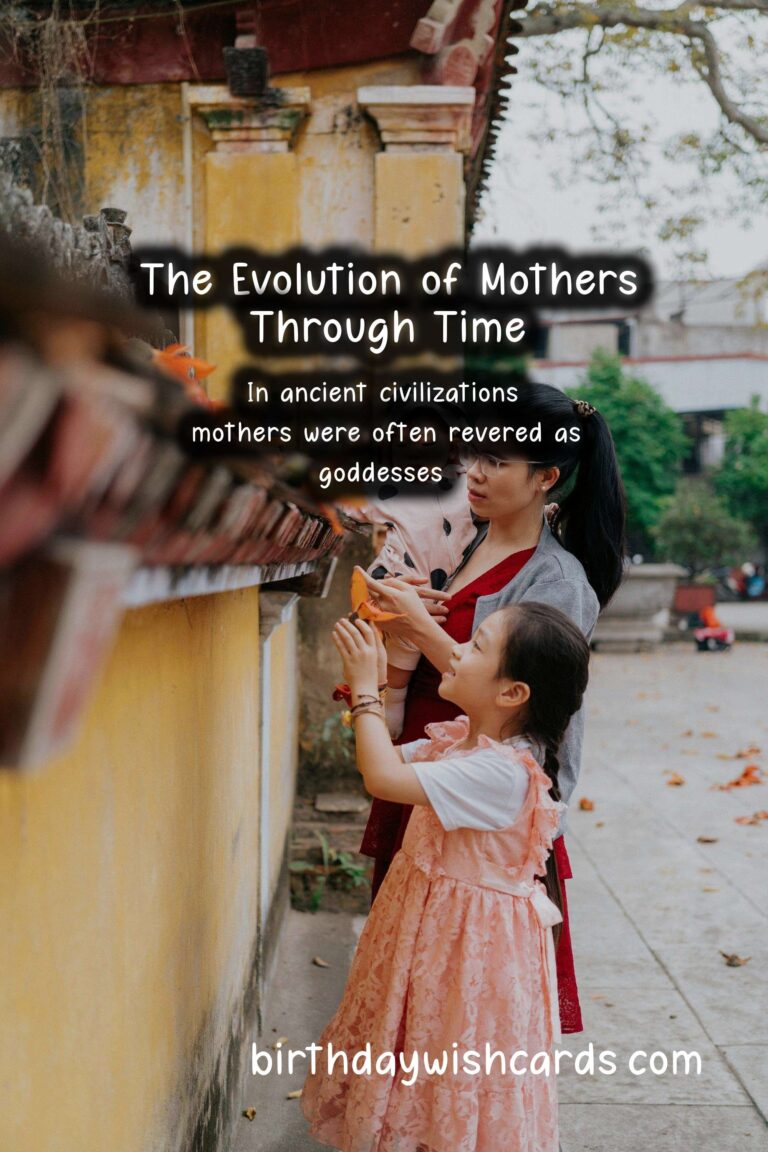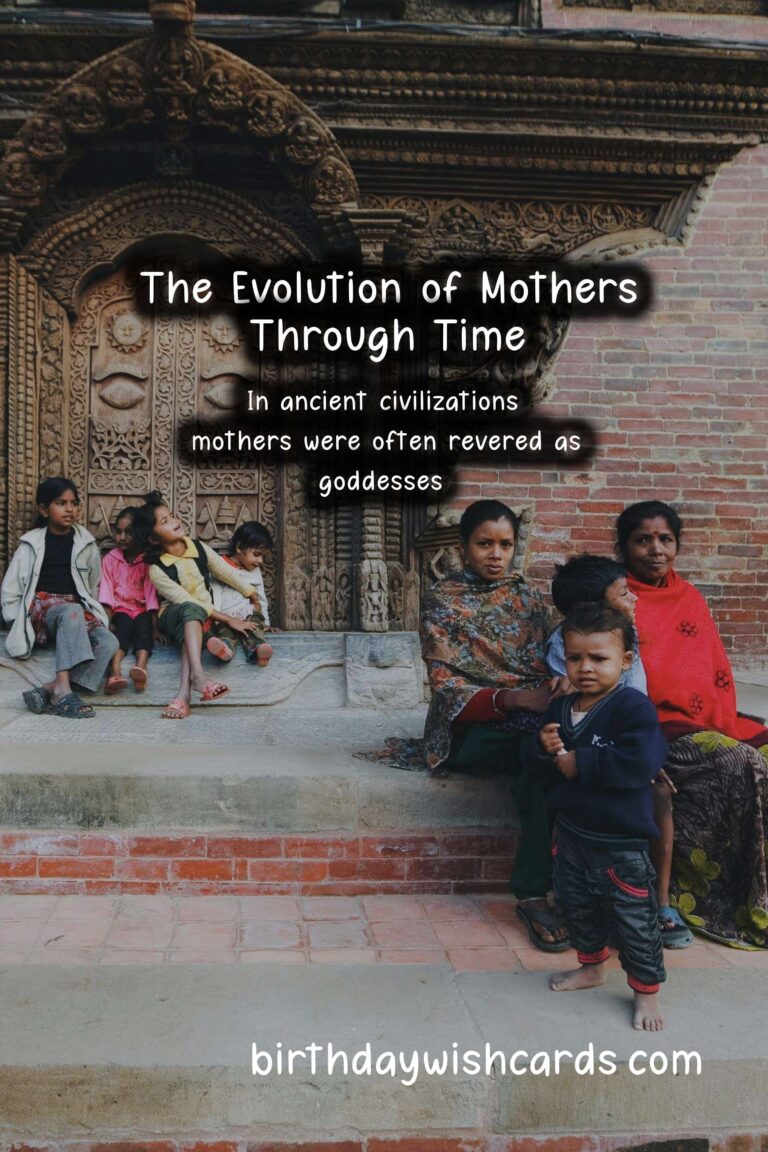
Motherhood is a concept that transcends cultures and epochs, embodying unconditional love, nurturing, and the foundation of familial bonds. Understanding the history of ‘Mom’ reveals not just a familial role but a multi-faceted cultural phenomenon that has evolved through the ages.
The Concept of Motherhood in Ancient Civilizations
In ancient civilizations, mothers were often revered as goddesses, symbolizing fertility, motherhood, and nurturing. For instance, in ancient Egypt, the goddess Isis was celebrated as the epitome of motherhood and fertility, embodying the ideal qualities of a mother.
Similarly, in Greek mythology, Demeter, the goddess of the harvest, is also recognized as a mother figure, emphasizing the importance of maternal care and nurturing in the growth of humanity.
The Mother Figure in the Bible and Religious Texts
In religious texts, the role of the mother is frequently highlighted as sacred and pivotal. The Bible portrays motherhood through figures like Mary, the mother of Jesus, presenting an ideal of purity, selflessness, and devotion. Such narratives shaped societal views on motherhood, placing mothers on pedestals that celebrated their sacrifices and the profound impact they had on their children’s lives.
The Evolution of Motherhood in Historical Contexts
Throughout history, the concept of motherhood has undergone significant transformations. During the Middle Ages, for example, the role of mothers was heavily influenced by the socio-economic climate. Women were often seen primarily as caregivers and homemakers, responsible for the nurturing of future generations. This period highlighted the importance of maternal influence in family structure and societal stability.
As we progressed into the industrial era, changing economic landscapes began to redefine the roles of mothers. With the rise of factories and urban living, more women began to seek employment outside the home, leading to shifts in traditional family dynamics.
Motherhood in the 20th Century
The 20th century marked a pivotal time for the cultural conception of motherhood. The suffrage movement and the subsequent push for gender equality brought significant attention to issues concerning women’s rights, including those of mothers. The feminist movement fought against the societal norms that confined women to the roles of dutiful wives and mothers.
Simultaneously, the advent of technology, such as the refrigerator and washing machine, alleviated some of the burdens traditionally placed upon mothers, allowing them to pursue professional careers while still maintaining family responsibilities.
Modern Perspectives on Motherhood
In contemporary society, motherhood is viewed through a diverse lens. The traditional notion of a single mother archetype is being expanded to encompass various experiences, including single mothers by choice, working mothers, and mothers from varied cultural backgrounds.
Additionally, discussions around parental leave policies, equal pay for women, and childcare accessibility are crucial to understanding the modern mother’s experience. These conversations underscore the ongoing societal shift towards recognizing the unique challenges that mothers face today.
The Role of Media in Shaping Motherhood
Media representations of mothers play a significant role in shaping societal perceptions of motherhood. From television shows and movies to social media platforms, mothers are both celebrated and scrutinized for their parenting styles and choices.
These portrayals can create unrealistic expectations, often leading to what is known as the “Mommy Wars,” where different parenting styles are pitted against each other in a culture of comparison.
Conclusion: The Continuing Legacy of Moms
The history of moms is a testament to their resilience and adaptability throughout time. From being revered as goddesses to navigating the complexities of modern parenting, mothers have continually shaped our world. Understanding this rich history can enhance our appreciation for the role of mothers in our lives and promote a more inclusive and supportive environment for all parenting styles.
Motherhood is a concept that transcends cultures and epochs. In ancient civilizations, mothers were often revered as goddesses. 
